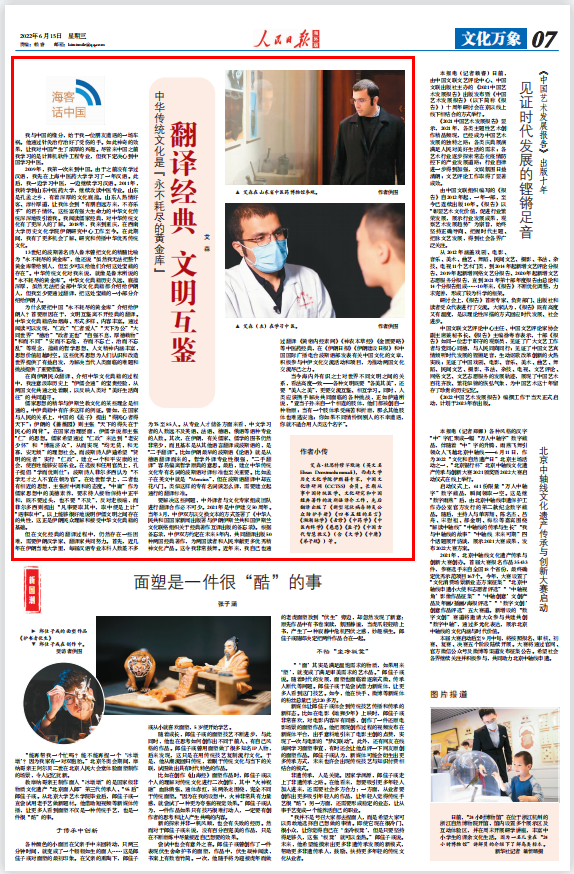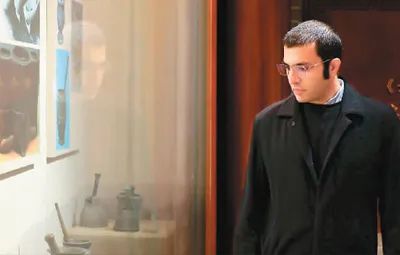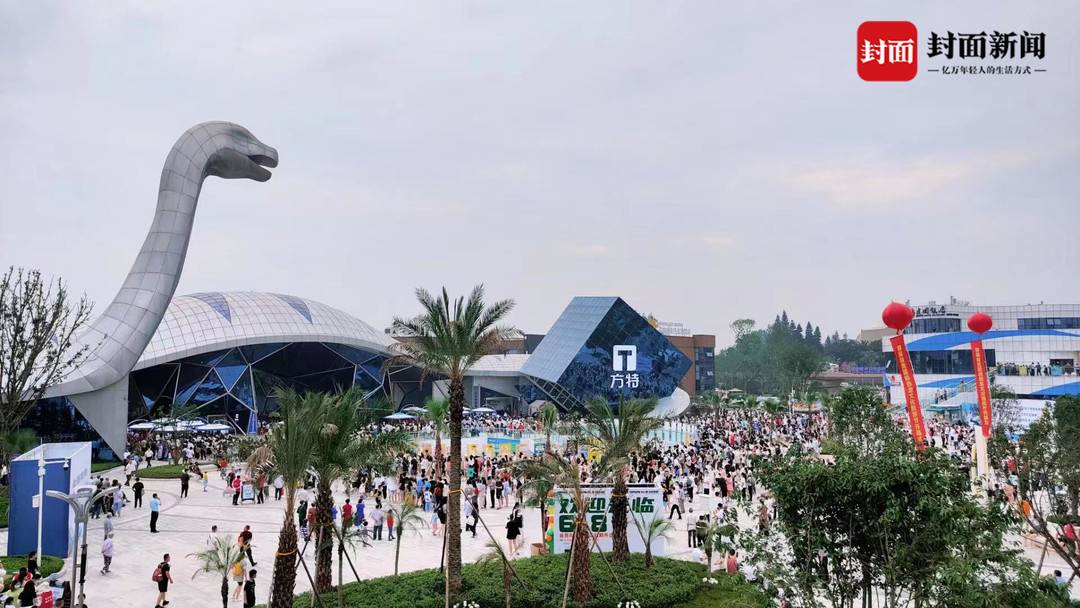Chinese traditional culture is "never exhausted gold library"!He used the translated classic to set up the Chinese -Iranian Cultural Bridge
Author:State Administration of Tradit Time:2022.06.15
Content source: "People's Daily Overseas Edition" June 15, 2022 Author: Eisen

My fate with China began with a car accident encountered by a friend. He cured the injured hand through acupuncture. Such a magical effect made me have a strong interest in China. Although I learned a computer software engineering major before coming to China, I was determined to study Chinese medicine in China.

Eisen (left) is studying Chinese medicine. Photo confession
In 2009, I came to China for the first time. Since I haven't learned Chinese before, I first studied Chinese at Shanghai University of Traditional Chinese Medicine for a year. Since then, I continue to learn Chinese while studying Chinese medicine. In 2011, I transferred to Shandong University of Traditional Chinese Medicine and continued to study in Chinese medicine. Shandong is the hometown of Confucius and Mencius, with deep cultural heritage. The enthusiastic hospitality and simplicity of Shandong people have appreciated the gentleman feelings of "there are friends from afar,". These strong vitality traditions have deeply attracted me. I read Confucian classics and have a deeper understanding of traditional Chinese culture. In 2018, I came to Chongqing and worked at the Iranian Research Center of the School of History and Culture of Southwest University. During this period, I had more opportunities to learn, research and spread the excellent traditional Chinese culture.

Eisen visited the Museum of Traditional Chinese Medicine in Shandong Province. Photo confession
The 13th -century Persian poet Rumy once compared the essence of culture as "the gold library that never exhausted". He also said, "Although I can't bring the entire golden library to others, at least I can introduce them to this treasure. exist". For me, the traditional Chinese culture is like Rumy's "never exhausted gold library." The history of Chinese cultural classics has a long history and profound heritage. Although I cannot introduce all Chinese cultural books to Iranians, I have to introduce a small part of this treasure to Iranians through translation.
Why do you introduce China to Iranians? The first reason is that civilizations are inseparable from classic translation. The Chinese cultural classics are vast, with diverse forms and rich content. Through reading, it can be found that "benevolence", "benevolent lover", "world is the public", "Datong world", "German governance", "politician is also", "self -improving, thick and different", "peace different" The concepts such as preserving and not forgetting to die, governing and not forgetting chaos ", such as the philosophical thoughts, humanistic spiritual connotations, and the value of ideological value exceeded time and space. These excellent ideas provide beneficial inspiration for people's understanding and transformation of the world, and provide important reference for solving the problems and challenges faced by contemporary humans.
In the process of translating and introducing Chinese cultural classics to the people of Iran, I pay attention to drawing valuable experiences in the history of "Irrigue's Conference", and focus on the common points of the two countries to reflect the common pursuit of human beings for "good life". Essence
The essence of Confucianism is similar to that of some ideas of Islamic culture. There are many such examples in the Chinese and Iranian classics. For example, in the relationship between the country and the people, China's "Mencius" proposes "those who win the people to get the world"; Iran's "Rose Garden" advocates that "the gains and losses of the world lies in the back of the people's hearts." At the national governance level, Yiru's doctrine advocates the idea of "benevolence". Confucianism hopes to achieve "Lao An Shaohuai" and "Bo Shizhong" through "benevolence", so as to realize the ideal society of "none of the poverty, no widow, no pour". The Persian poet Sadi hopes that the "wise man" will implement "benevolence" and establish a peaceful and well -being society, so that the people can live in peace and career. In the selection and appointment officials, Confucius advocated "learning and excellence"; the Persian Poet Feldesi believed that "people who do not learn without talent should not be the official in the North." In the philosophy of life, the two also have similar thoughts, advocating a reconciliation attitude. "The Golden Mean", as a virtue of the Confucianism, requires people to take care of things to be peaceful, neither too much nor "less", oppose the extreme, while Phil Drop proposed that "everything must be taken in everything, and the Chinese count is the upper plan. "" In the event of something. " The above can explain the commonality between Irigan civilization, which is the basis for the understanding of the Iranian people to understand and accept the Chinese cultural classics.
However, in the process of cultural classics, there are still some difficulties, and Iranian sinologists and translators need to work together. First of all, in the local universities in Iran in recent years, the number of undergraduates in each Chinese language major is almost 75 to 85. From the perspective of professional talent reserves, the number of Chinese learners is far less than the number of language majors in English, French, German, and Russian. Secondly, in Iran, there are still very few books about Confucianism and Confucianism, and they are basically translated from other languages to Persian. They are "second -hand translations". For example, Iran's earliest Persian "Analects" was translated from German. Philosophy foreign translation is very professional, and "second -hand translation" can easily deviate from the original philosophy. Finally, Persian, a proprietary noun for traditional Chinese culture, is also crucial to translation standards. For example, Mencius is "Mencius" in English, but in Persian translation. How to translate such a proper noun like this requires a passive translation standard.
To solve these problems, Chinese and foreign translators and cultural experts formed a team for translation cooperation. 2021 is the 50th anniversary of the establishment of diplomatic relations between China and Iran. In March of that year, China and Iran signed the "Memorandum of the National Press and Publication Department of the People's Republic of China and the Islamic Cultural Liaison Organization of the National Press and Publication Department of the People's Republic of China on the Memorandum of Mutual Translation and Publication of Classic Works". According to the memorandum, China -Iran's agreed that in the next 5 years, they jointly translate and publish 50 classics of the two countries to dedicate more outstanding spiritual and cultural products to readers and people of the two countries. This makes me very encouraged. In recent years, I have also translated Chinese medicine classics such as "Yellow Emperor's Scriptures", "Shennong Materia Medica", "Golden Substitute", and published in the Iranian Daily, Iranian Construction Daily and China International Broadcasting Station Persian Ministry of Persia. Articles of culture, actively participate in cultural exchange activities and projects in China and Iran, and do their best to promote cultural exchanges between the two countries. Today, people of insight at home and abroad have a high perception of the relationship between different civilizations in the world -all kinds of civilizations must be "beautiful and beautiful", "beauty of beauty", but also to communicate and learn from each other. At the same time, humans should work together to solve the various challenges facing together. As Sadi said, "Adam's descendants come from a connected limb, they are all created by one kind of original. It is also difficult to escape the comfort; if you are unhappy with other people's unfortunate encounters, you are not suitable for the name of humans. "
Author Xiao Chuan
EHSAN DOOSTMOHAMMADI (English name), Iranian expert at the School of History and Culture of Southwest University, a member of the Chinese Culture Translation and Research Network (CCTSS). Persian translations of traditional Chinese medicine, cultural research and Chinese classics for a long time have translated and published "Public Protection Manual of New Coronatte Viruses Pneumonia", "Famous Quotes for Four Books and Five Classics", "Lakes", "Tongue Diagnosis", "China" "Pharmacy", "Traditional Chinese Medicine Internal Science", "Compassion", "Mencius", and "Ancient Chinese Wisdom doctrine" (including "University", "The Golden Mean" and "Disciples Regulations").
Edit: Dong Juntong
- END -
Sichuan Zigong Town Town Town Town Town Dragon Knight Theme District officially opened the street tourists to check in time and space dragon knights doll to taste salt and gourmet food

Cover news reporter Liu Ke ShengOn June 18, the tourists from Zigong time and spac...
Children's Book Care: Meghanfu Award: Oscar in the Cubs Book Industry

Zhan Lu's college calendar, good -looking and good, exclusive museum around you.Th...